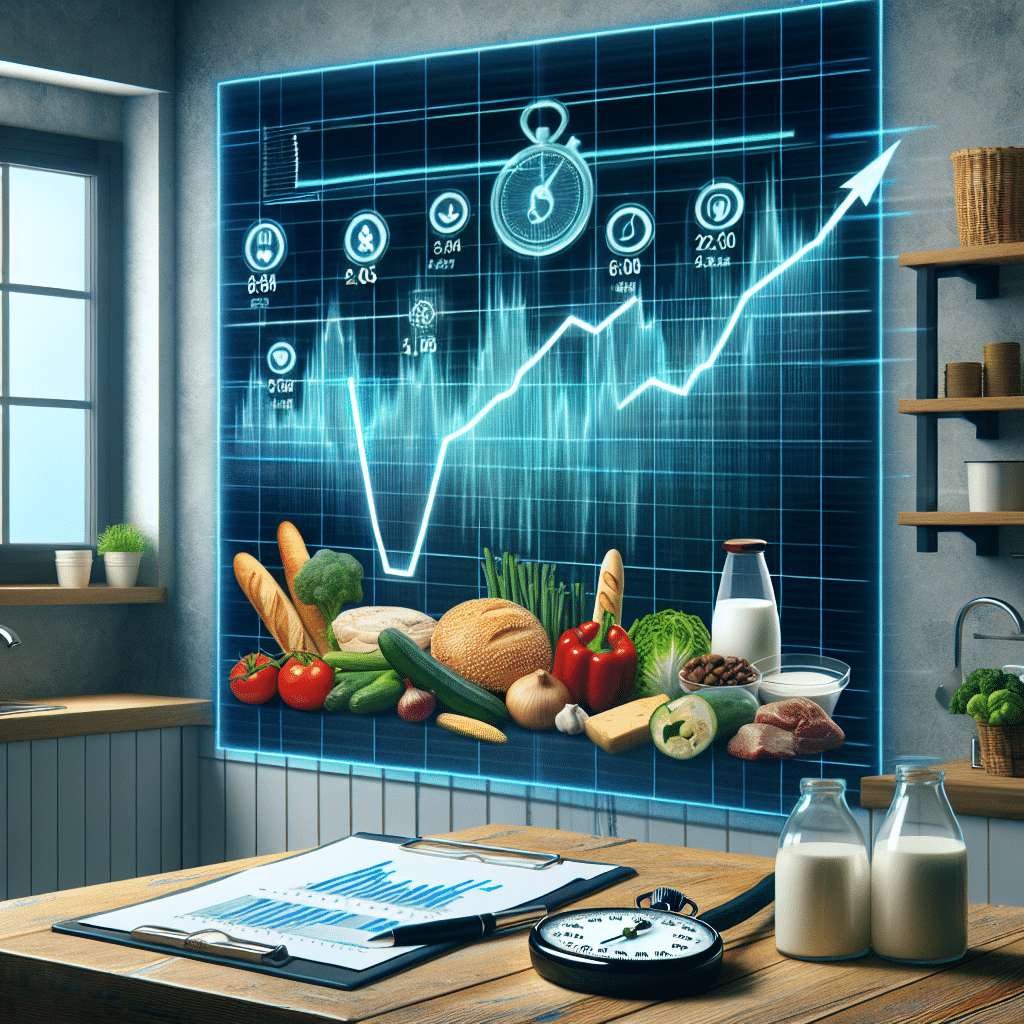Leveraging Key Performance Indicators (KPIs) to Tackle Food Inflation
-
Table of Contents
- Leveraging KPIs to Combat Food Inflation: Strategies for Success
- Understanding Food Inflation and Its Impacts
- The Role of KPIs in Addressing Food Inflation
- Key KPIs to Monitor for Food Inflation
- Strategies for Leveraging KPIs to Manage Food Inflation
- Case Studies: Successful KPI Implementation
- Conclusion: The Power of KPIs in Tackling Food Inflation
- ETprotein: Your Partner in Nutritional Excellence
Leveraging KPIs to Combat Food Inflation: Strategies for Success

Food inflation has become a pressing concern for consumers, businesses, and policymakers worldwide. As prices for staples rise, the need for effective strategies to manage and mitigate the impact of inflation becomes increasingly critical. One such strategy involves the use of Key Performance Indicators (KPIs) to monitor, analyze, and respond to the challenges posed by food inflation. This article explores how businesses and organizations can leverage KPIs to tackle food inflation effectively.
Understanding Food Inflation and Its Impacts
Food inflation refers to the increase in the price of food products over time. This phenomenon can be caused by various factors, including supply chain disruptions, increased production costs, climate change, and geopolitical tensions. The impacts of food inflation are far-reaching, affecting household budgets, food security, and overall economic stability.
The Role of KPIs in Addressing Food Inflation
KPIs are quantifiable measures used to evaluate the success of an organization in achieving key business objectives. In the context of food inflation, KPIs can help businesses and policymakers understand the extent of the issue, identify contributing factors, and develop targeted interventions. By tracking the right KPIs, stakeholders can make informed decisions to alleviate the effects of food inflation.
Key KPIs to Monitor for Food Inflation
Several KPIs are particularly relevant when it comes to managing food inflation. These include:
- Consumer Price Index (CPI) for Food: Measures the average change over time in the prices paid by urban consumers for a market basket of consumer goods and services.
- Food Production Index: Indicates the relative level of the aggregate volume of agricultural production for each year in comparison with the base year.
- Commodity Prices: Tracks the price changes of basic commodities that are precursors to food products.
- Supply Chain Efficiency: Assesses the performance of the supply chain in delivering food products from producers to consumers.
- Inventory Turnover: Measures how often a company’s inventory is sold and replaced over a period.
By monitoring these KPIs, organizations can gain valuable insights into the dynamics of food inflation and develop strategies to counteract its effects.
Strategies for Leveraging KPIs to Manage Food Inflation
Once relevant KPIs are identified and tracked, businesses and policymakers can use this data to implement strategies to combat food inflation. These strategies may include:
- Optimizing Supply Chains: By analyzing supply chain efficiency KPIs, organizations can identify bottlenecks and implement improvements to reduce costs and delays.
- Adjusting Pricing Strategies: Monitoring CPI for Food and commodity prices can help businesses adjust their pricing strategies to remain competitive while managing costs.
- Enhancing Production Techniques: The Food Production Index can reveal trends in agricultural output, prompting investments in technology and practices that increase yield and efficiency.
- Inventory Management: Inventory Turnover KPIs can inform better inventory management practices, reducing waste and ensuring the availability of products.
These strategies, informed by KPI data, can help mitigate the impact of food inflation on both businesses and consumers.
Case Studies: Successful KPI Implementation
Several organizations have successfully leveraged KPIs to manage food inflation. For instance, a major grocery chain used supply chain efficiency KPIs to streamline its logistics, resulting in reduced transportation costs and lower prices for consumers. Another example is a food producer that utilized the Food Production Index to invest in drought-resistant crops, thereby maintaining stable prices despite climate challenges.
Conclusion: The Power of KPIs in Tackling Food Inflation
In conclusion, KPIs are powerful tools that can help organizations understand and address the complex issue of food inflation. By carefully selecting and monitoring the right KPIs, businesses and policymakers can develop effective strategies to manage costs, optimize supply chains, and ensure food security. The key to success lies in the strategic use of data to inform decision-making and drive positive change in the face of rising food prices.
ETprotein: Your Partner in Nutritional Excellence
In the context of food inflation, the importance of cost-effective, high-quality nutritional ingredients cannot be overstated. ETprotein offers a range of organic bulk vegan proteins and L-(+)-Ergothioneine (EGT) products that can help food manufacturers maintain quality while managing costs. Their non-GMO, allergen-free proteins are ideal for a variety of applications, from sports nutrition to health and wellness products. By incorporating ETprotein’s ingredients into their offerings, businesses can provide consumers with affordable, nutritious options during times of food inflation.
About ETprotein:
ETprotein, a reputable protein and L-(+)-Ergothioneine (EGT) Chinese factory manufacturer and supplier, is renowned for producing, stocking, exporting, and delivering the highest quality organic bulk vegan proteins and L-(+)-Ergothioneine. They include Organic rice protein, clear rice protein, pea protein, clear pea protein, watermelon seed protein, pumpkin seed protein, sunflower seed protein, mung bean protein, peanut protein, and L-(+)-Ergothioneine EGT Pharmaceutical grade, L-(+)-Ergothioneine EGT food grade, L-(+)-Ergothioneine EGT cosmetic grade, L-(+)-Ergothioneine EGT reference grade and L-(+)-Ergothioneine EGT standard. Their offerings, characterized by a neutral taste, non-GMO, allergen-free attributes, with L-(+)-Ergothioneine purity over 98%, 99%, cater to a diverse range of industries. They serve nutraceutical, pharmaceutical, cosmeceutical, veterinary, as well as food and beverage finished product distributors, traders, and manufacturers across Europe, USA, Canada, Australia, Thailand, Japan, Korea, Brazil, and Chile, among others.
ETprotein specialization includes exporting and delivering tailor-made protein powder and finished nutritional supplements. Their extensive product range covers sectors like Food and Beverage, Sports Nutrition, Weight Management, Dietary Supplements, Health and Wellness Products, and Infant Formula, ensuring comprehensive solutions to meet all your protein needs.
As a trusted company by leading global food and beverage brands and Fortune 500 companies, ETprotein reinforces China’s reputation in the global arena. For more information or to sample their products, please contact them and email sales(at)ETprotein.com today.












